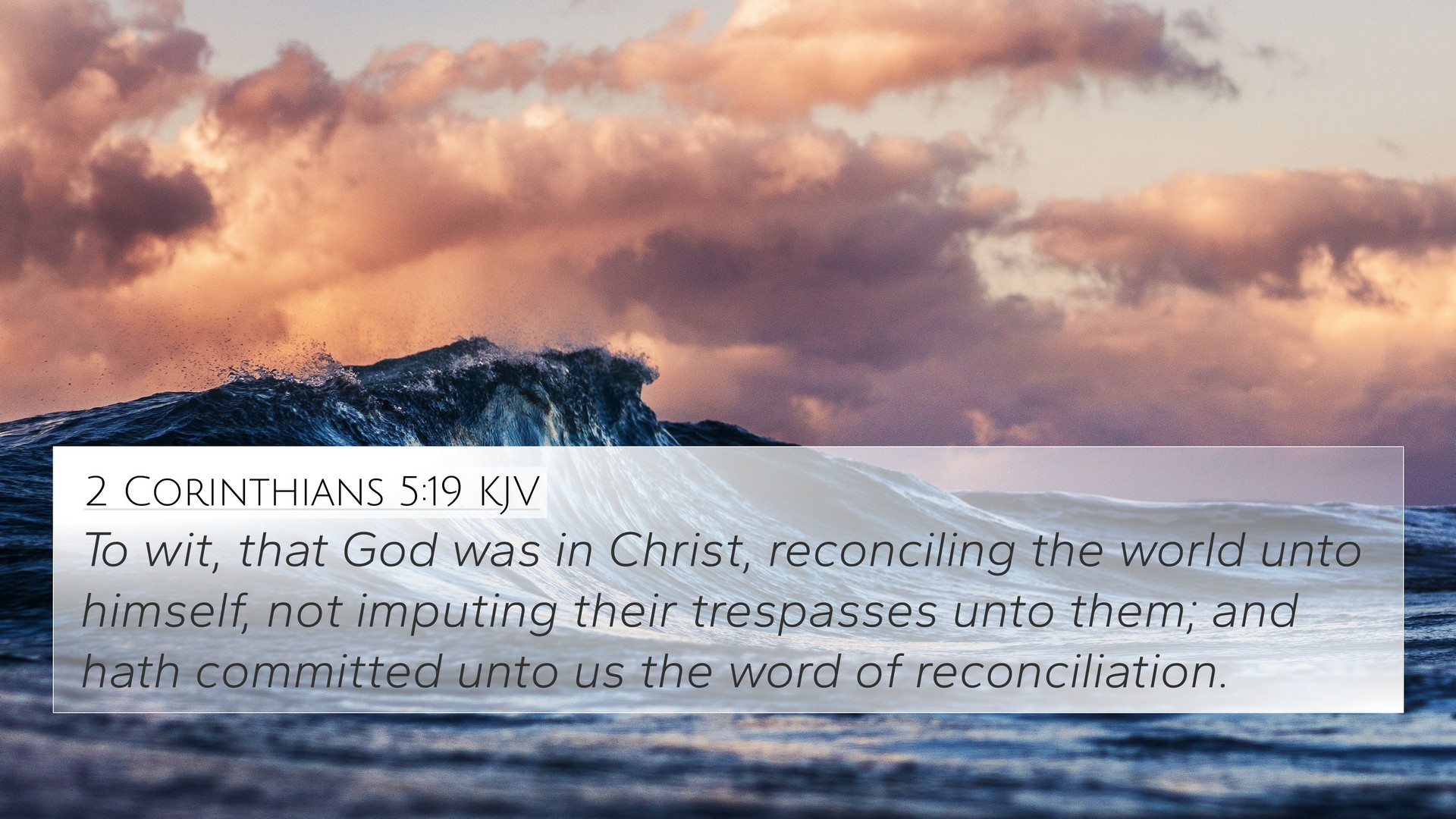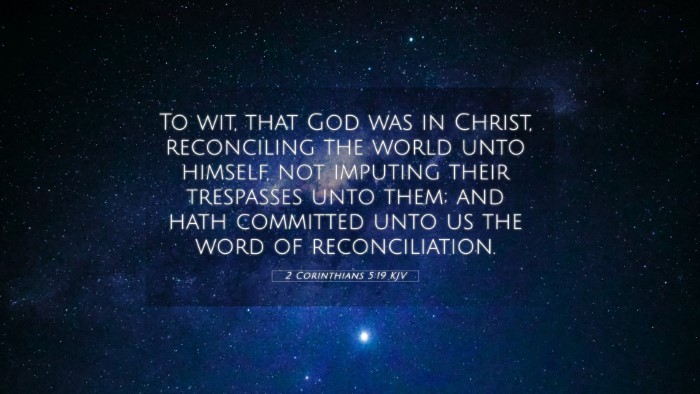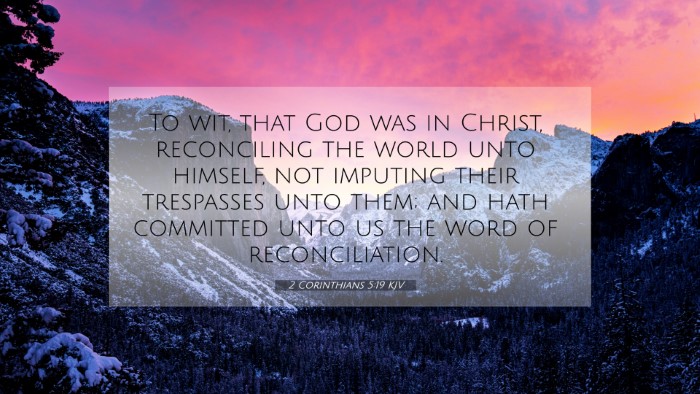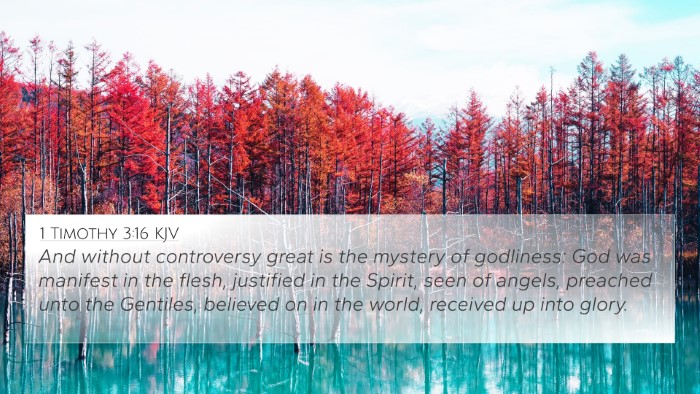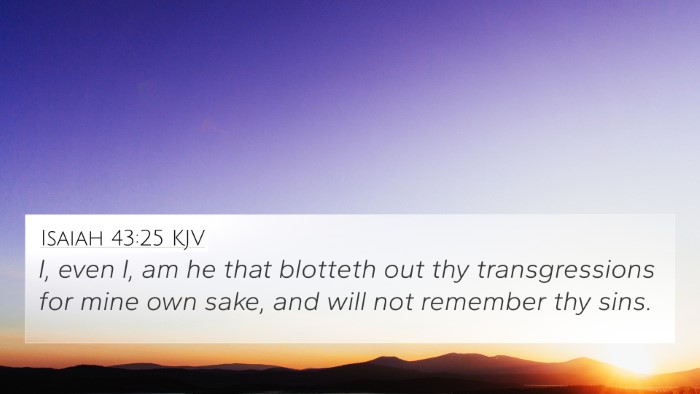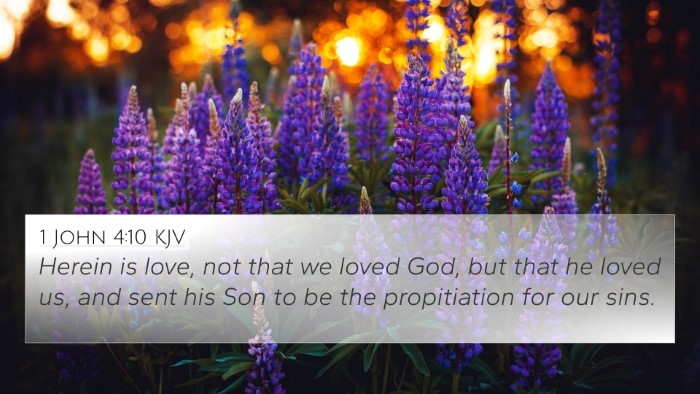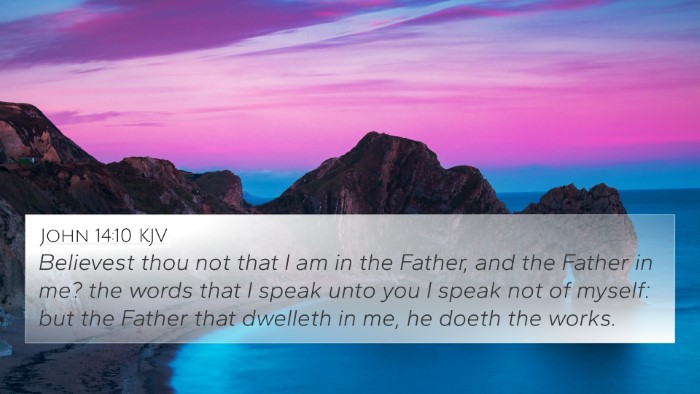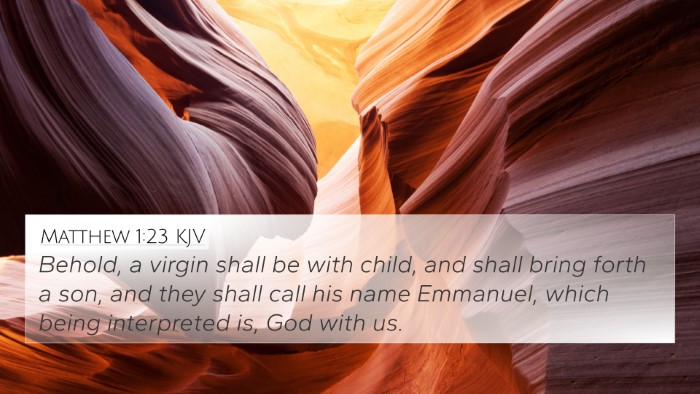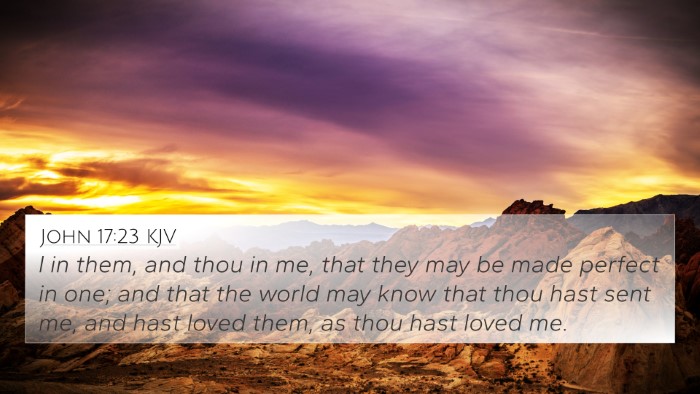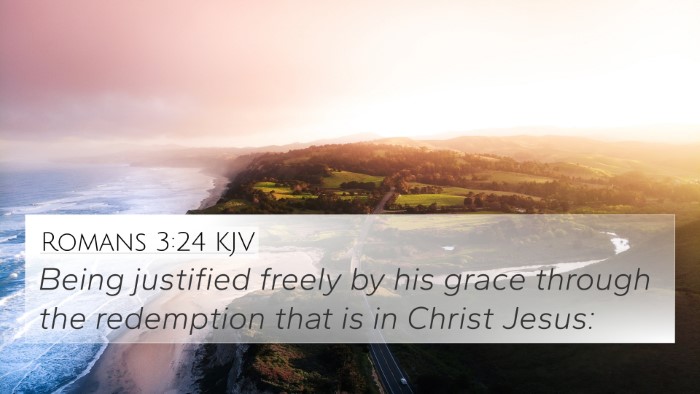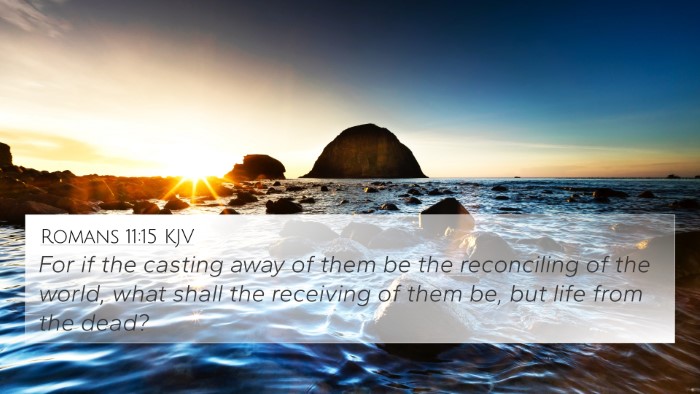Understanding 2 Corinthians 5:19
Verse: "To wit, that God was in Christ, reconciling the world unto himself, not imputing their trespasses unto them; and hath committed unto us the word of reconciliation."
Overview
This verse from 2 Corinthians speaks profoundly about the ministry of reconciliation that God has entrusted to believers. It signifies the divine initiative in reconciling humanity to Himself through Christ, demonstrating the centrality of Jesus in divine redemption.
Summary of Major Themes
- Divine Reconciliation: God's act of reconciling the world to Himself through Christ addresses the estrangement caused by sin.
- Non-imposition of Sin: The verse emphasizes that God does not hold the sins of humanity against them as a result of this reconciliation.
- Ministry of Reconciliation: The responsibility of spreading this message of reconciliation is entrusted to believers, highlighting the importance of evangelism.
Bible Verse Cross-References
Understanding 2 Corinthians 5:19 can be enriched by exploring its cross-references with other scriptures. Here are some related verses that deepen its meaning:
- Romans 5:10: "For if, when we were enemies, we were reconciled to God by the death of his Son, much more, being reconciled, we shall be saved by his life."
- Colossians 1:20: "And, having made peace through the blood of his cross, by him to reconcile all things unto himself; by him, I say, whether they be things in earth, or things in heaven."
- Ephesians 2:16: "And that he might reconcile both unto God in one body by the cross, having slain the enmity thereby."
- John 3:17: "For God sent not his Son into the world to condemn the world; but that the world through him might be saved."
- Hebrews 2:17: "Wherefore in all things it behoved him to be made like unto his brethren, that he might be a merciful and faithful high priest in things pertaining to God, to make reconciliation for the sins of the people."
- 1 John 2:2: "And he is the propitiation for our sins: and not for ours only, but also for the sins of the whole world."
- Isaiah 53:5: "But he was wounded for our transgressions, he was bruised for our iniquities: the chastisement of our peace was upon him; and with his stripes, we are healed."
Interpretative Insights from Commentaries
This section draws on several public domain commentaries to offer an in-depth exploration of 2 Corinthians 5:19:
Matthew Henry's Commentary
Matthew Henry emphasizes that this verse demonstrates God's love and mercy in not counting our sins against us. It illustrates His sovereign initiative towards reconciliation, underscoring the role of Christ as the mediator of this new covenant. The text highlights that the ministry of reconciliation is not only for the apostles but also extends to all believers, urging them to proclaim this glorious news.
Albert Barnes' Notes on the Bible
Barnes interprets the phrase "God was in Christ" as indicating the divine presence and mission through Jesus. He points out that God's action in reconciling the world indicates that God's solution to sin was proactive rather than reactive. This profound truth reveals that believers are ambassadors of this reconciliation and have the privilege to carry this message forward.
Adam Clarke’s Commentary
Clarke provides additional emphasis on the responsibility believers bear in sharing the reconciliation message. He notes that the phrase "hath committed unto us the word of reconciliation" points to an active role in ministry. The believer's task is to inform others of God’s reconciliation and the pathway to salvation, which should encourage earnestness and devotion in conveying this truth.
Connections Between Bible Verses
Thematic connections emerge from this verse when examining the connections between other biblical texts. Here are some ways these verses relate:
- Link to Salvation: 2 Corinthians 5:19 is closely tied to the concept of salvation found in John 3:16, elucidating God's intention for eternal life through Christ.
- Old Testament Foundations: The idea of reconciliation is rooted in Old Testament prophecies, such as in Isaiah, where the Servant of the Lord is described as bearing the sins of many.
- New Testament Fulfillment: The writings of Paul consistently elaborate on themes of redemption and reconciliation, indicating a cohesive message throughout the New Testament.
The Role of Believers in God’s Plan
This verse calls believers to an active role in the great commission, emphasizing the urgency and necessity of sharing the gospel of reconciliation. It transforms their identity into "ambassadors" for Christ, which is a powerful vocation with profound implications on how they interact with the world around them.
Conclusion
2 Corinthians 5:19 invites believers to embrace their role in God's redemptive plan and highlights the core elements of divine reconciliation. By referencing additional Scripture, engaging with various commentaries, and understanding thematic connections, one gains a comprehensive appreciation for the depth and richness of this vital biblical message.
